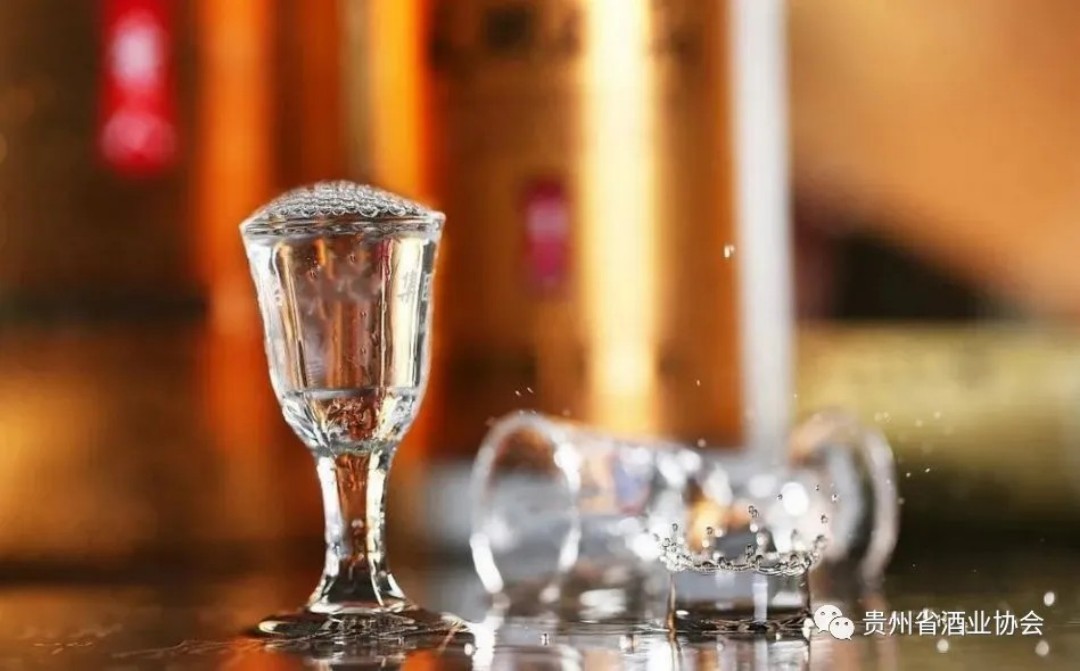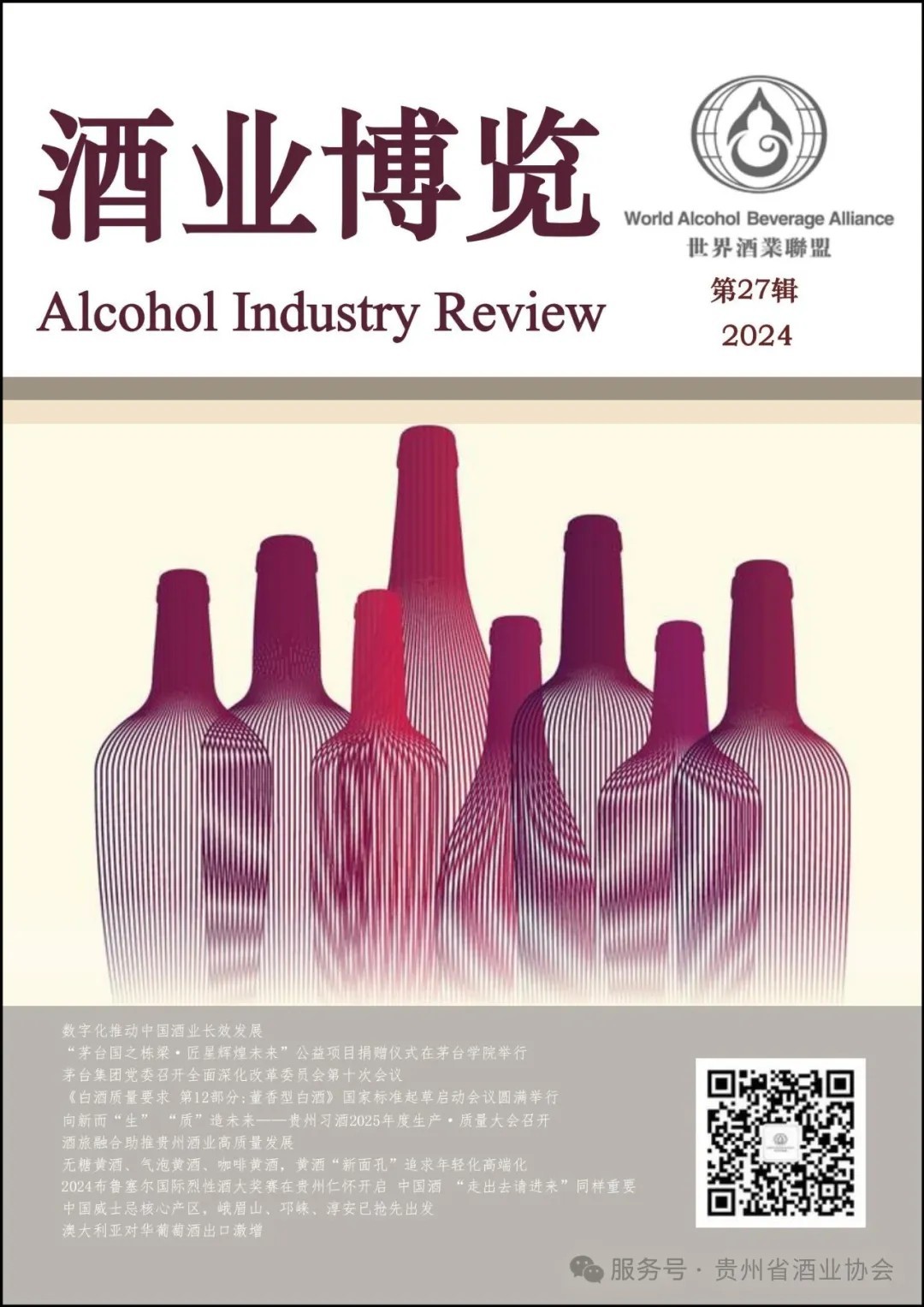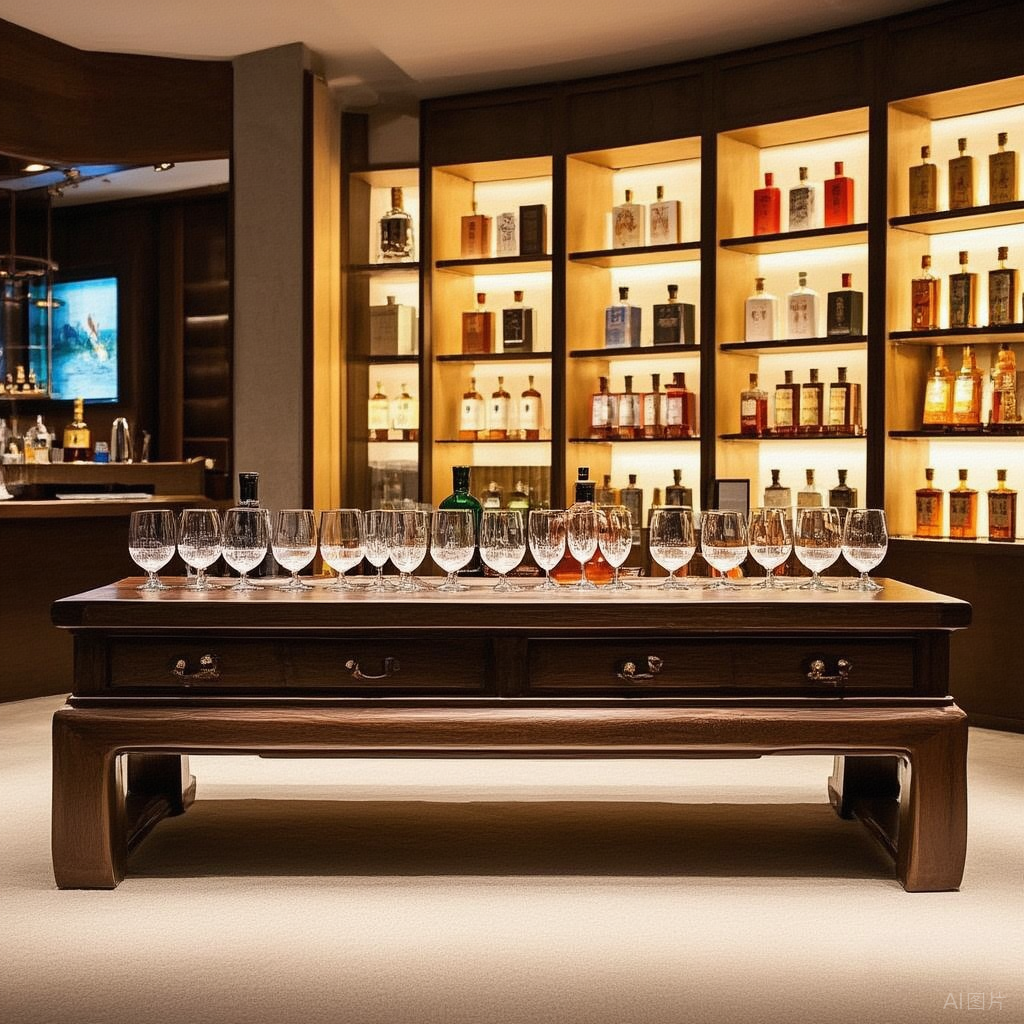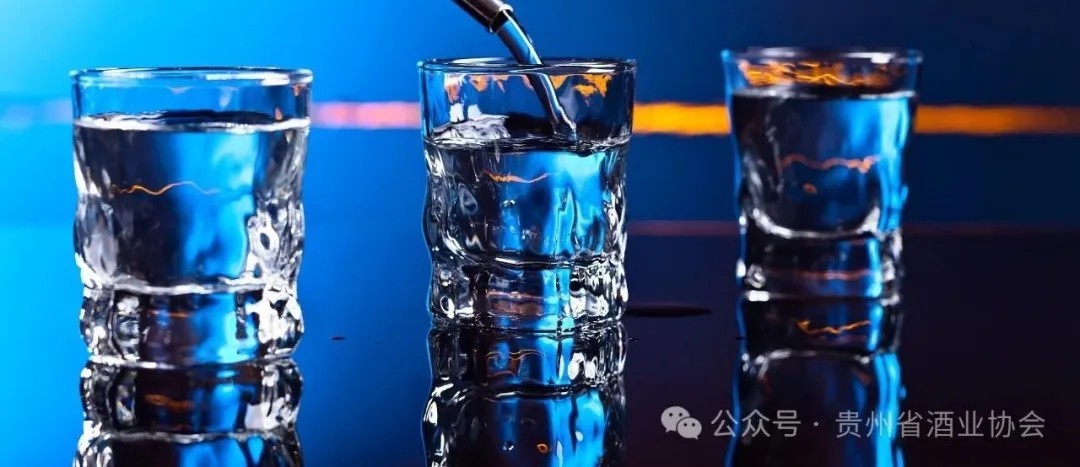
白酒销售不断下滑,我们进行了应急研究。发现白酒产业是全产业链产业,在传统的原料种植、工厂生产、市场营销三大产业链外,还存在科学消费产业链。这一发现,我们在第26辑《酒业博览》杂志上发表后,立即引起了广大消费和生产经营者的关注和共鸣。同时,我们在27辑《酒业博览》杂志上,探究了是什么导致白酒消费下行的一些问题。揭示了社会上,一些对“饮酒”难以进行正确的收益判断的一些原因,并从人的消费心理上,进行了疏导,提出了促进白酒销售的一些办法——谈白酒科学消费之一。
The declining sales of liquor have prompted urgent research into the issue. We discovered that the liquor industry operates as a full-industry chain. In addition to the traditional three main industrial chains—raw material cultivation, factory production, and marketing—there exists a scientific consumption industrial chain. This discovery, published in Liquor Industry Review Issue 26, quickly gained the attention and support of both consumers and business operators. In Issue 27, we delved into the causes of the downward trend in liquor consumption, identifying societal issues such as the inability to accurately assess the benefits of drinking, and offering psychological guidance to address these concerns. We also proposed several strategies to boost liquor sales—this is part of our ongoing discussion on the scientific consumption of liquor.

科学消费链的重要性,应该已为人们所认识。那如何做大酒的科学消费链呢?
The significance of the scientific consumption chain is increasingly recognized. But how can we expand this chain for liquor?
我们知道,一切生产的目的都是为了人,一切为了人是经济社会发展的根本。白酒消费,是白酒生产的终点,更应该是生产的起点。
It is well understood that the ultimate goal of production is to serve people, and that everything we do for people is the foundation of economic and social progress. Liquor consumption is the end goal of liquor production, but it should also serve as the starting point for production.
 一段时间以来,酒的生产企业,开始做酒的文化体验馆,开展品鉴,勾调,等等个性化服务。试图想建立一个消费的场景,促进酒的消费。这应该是酒企在传统三大产业链上,向消费产业链探索的一种形式,是白酒全产业链被不断认识的一种进步。这也是从过程描述的角度,对我们提出的“白酒存在第四产业链”研究成果的一种实证。
For some time now, liquor production companies have begun to establish cultural experience centers, offering tasting sessions, blending services, and other personalized services. Their goal is to create consumption scenarios that promote liquor consumption. This effort represents an exploration by liquor companies into the consumption industrial chain, expanding beyond the traditional three industrial chains. It marks a significant advancement in the growing recognition of the full liquor industry chain. From a process perspective, this also provides empirical evidence for our research into the existence of a “fourth industrial chain” for liquor.
一段时间以来,酒的生产企业,开始做酒的文化体验馆,开展品鉴,勾调,等等个性化服务。试图想建立一个消费的场景,促进酒的消费。这应该是酒企在传统三大产业链上,向消费产业链探索的一种形式,是白酒全产业链被不断认识的一种进步。这也是从过程描述的角度,对我们提出的“白酒存在第四产业链”研究成果的一种实证。
For some time now, liquor production companies have begun to establish cultural experience centers, offering tasting sessions, blending services, and other personalized services. Their goal is to create consumption scenarios that promote liquor consumption. This effort represents an exploration by liquor companies into the consumption industrial chain, expanding beyond the traditional three industrial chains. It marks a significant advancement in the growing recognition of the full liquor industry chain. From a process perspective, this also provides empirical evidence for our research into the existence of a “fourth industrial chain” for liquor.

理论来源于实践,通过归纳和演绎,可形成新的理论,指导未来的实践。研究表明,除了消费产业链的内涵研究外,消费产业链的外延,应该包含了酒企已向酒消费端拓展的一些行为和场景打造,这也是酒消费链建设的一种产业形式。
Theory arises from practice. Through both induction and deduction, new theories can be developed to guide future practices. Research shows that, in addition to examining the core aspects of the consumption industrial chain, its scope should also encompass the actions and scenarios that liquor companies have begun to develop as they extend into the consumer market.
 如何建设酒消费链?基于酒的物质产品的特性,在健康和保健及饮食方面,都还有很多领域可以涉足。基于酒精神产品的属性,在新的酒消费场景建设方面,如酒AI,酒娱乐等等,这更是方兴未艾。已探明的,有待我们去实施;未探明的,还有待我们去揭示。总的是,白酒消费链的建设可作为白酒的第四产业来打造。
So, how do we build the liquor consumption chain? Given the characteristics of liquor as a material product, there are still many areas to explore in terms of health, wellness, and dining. Furthermore, based on the spiritual attributes of liquor, new consumption scenarios—such as liquor-related AI technologies and entertainment—are still in their infancy. Some areas have already been explored and are ready for implementation, while others remain untapped. In either case, the construction of the liquor consumption chain has the potential to become the fourth industry for liquor.
如何建设酒消费链?基于酒的物质产品的特性,在健康和保健及饮食方面,都还有很多领域可以涉足。基于酒精神产品的属性,在新的酒消费场景建设方面,如酒AI,酒娱乐等等,这更是方兴未艾。已探明的,有待我们去实施;未探明的,还有待我们去揭示。总的是,白酒消费链的建设可作为白酒的第四产业来打造。
So, how do we build the liquor consumption chain? Given the characteristics of liquor as a material product, there are still many areas to explore in terms of health, wellness, and dining. Furthermore, based on the spiritual attributes of liquor, new consumption scenarios—such as liquor-related AI technologies and entertainment—are still in their infancy. Some areas have already been explored and are ready for implementation, while others remain untapped. In either case, the construction of the liquor consumption chain has the potential to become the fourth industry for liquor.
 酒消费链建设作为产业来打造,就可容纳大量的资本和企业。有一定规模的白酒生产企业,可主动向酒消费产业链延伸,开办白酒消费链公司;
Building the liquor consumption chain as an industry can accommodate substantial capital and business participation. Larger liquor production companies can proactively extend into the consumption industrial chain by establishing specialized liquor consumption chain companies.
规模较小的白酒企业,可与跨界企业合作或松散虚拟联合,如与文旅企业,保健企业,娱乐企业等合作联合,实现优势互补,尽快做大消费链企业;
Smaller liquor companies, in contrast, can collaborate with cross-industry businesses or form a loose economic consortium—such as with cultural tourism, wellness, and entertainment companies—to leverage complementary strengths and rapidly expand their consumption chain enterprises.
酒消费链建设作为产业来打造,就可容纳大量的资本和企业。有一定规模的白酒生产企业,可主动向酒消费产业链延伸,开办白酒消费链公司;
Building the liquor consumption chain as an industry can accommodate substantial capital and business participation. Larger liquor production companies can proactively extend into the consumption industrial chain by establishing specialized liquor consumption chain companies.
规模较小的白酒企业,可与跨界企业合作或松散虚拟联合,如与文旅企业,保健企业,娱乐企业等合作联合,实现优势互补,尽快做大消费链企业;
Smaller liquor companies, in contrast, can collaborate with cross-industry businesses or form a loose economic consortium—such as with cultural tourism, wellness, and entertainment companies—to leverage complementary strengths and rapidly expand their consumption chain enterprises.
 一些行业投资者,可大胆的把准备投向白酒生产链的资本,投向白酒消费链建设;
Some industry investors may confidently reallocate the capital initially intended for the liquor production chain to support the development of the liquor consumption chain.
一些与白酒消费存在生产或消费链交叉或部分交叉的企业,可强化白酒消费链的功能,延伸投入等等。
Companies whose operations intersect with the liquor production or consumption chains can enhance the functionality of the liquor consumption chain by increasing investment and expanding their engagement.
一些行业投资者,可大胆的把准备投向白酒生产链的资本,投向白酒消费链建设;
Some industry investors may confidently reallocate the capital initially intended for the liquor production chain to support the development of the liquor consumption chain.
一些与白酒消费存在生产或消费链交叉或部分交叉的企业,可强化白酒消费链的功能,延伸投入等等。
Companies whose operations intersect with the liquor production or consumption chains can enhance the functionality of the liquor consumption chain by increasing investment and expanding their engagement.
 酒消费链建设前期,由于还没有形成规模,可能投入产出比不一定高,这就要从白酒整体收益和未来收益上,进行平衡调节。作为政府来说,应当多些政策引导,出台一些用酒税收反哺酒消费链建设的政策。同时,要加强白酒对人精神和物质作用的研究,通过研究,改良白酒品种,增加多元化,多样化的酒品,并不断提高酒的质量,增加酒对人健康的正向作用等等。
In the early stages of developing the liquor consumption chain, the input-output ratio may not be high due to the lack of scale. Therefore, it is essential to balance the overall and future returns from liquor. From a governmental standpoint, more policy guidance is needed, including the introduction of policies that use liquor tax revenues to reinvest in the growth of the consumption chain. Furthermore, research into the physical and psychological effects of liquor should be strengthened. This will enable the improvement of liquor varieties, enhance product diversification, and continuously elevate quality, while also increasing the positive health benefits of liquor.
酒消费链建设前期,由于还没有形成规模,可能投入产出比不一定高,这就要从白酒整体收益和未来收益上,进行平衡调节。作为政府来说,应当多些政策引导,出台一些用酒税收反哺酒消费链建设的政策。同时,要加强白酒对人精神和物质作用的研究,通过研究,改良白酒品种,增加多元化,多样化的酒品,并不断提高酒的质量,增加酒对人健康的正向作用等等。
In the early stages of developing the liquor consumption chain, the input-output ratio may not be high due to the lack of scale. Therefore, it is essential to balance the overall and future returns from liquor. From a governmental standpoint, more policy guidance is needed, including the introduction of policies that use liquor tax revenues to reinvest in the growth of the consumption chain. Furthermore, research into the physical and psychological effects of liquor should be strengthened. This will enable the improvement of liquor varieties, enhance product diversification, and continuously elevate quality, while also increasing the positive health benefits of liquor.
 使白酒更多的满足人的精神和物质消费需要,在白酒全产业链的源头——消费链上,促进和激励白酒的生产。从需求侧角度,推动白酒产业不断前行,这恐是解决当前和将来白酒销售下滑的关键。
To better meet people’s physical and psychological consumption needs, the production of liquor should be promoted and incentivized at the source of the liquor industry chain—the consumption chain. From the demand-side perspective, advancing the liquor industry continuously is likely the key to addressing the current and future decline in liquor sales.
使白酒更多的满足人的精神和物质消费需要,在白酒全产业链的源头——消费链上,促进和激励白酒的生产。从需求侧角度,推动白酒产业不断前行,这恐是解决当前和将来白酒销售下滑的关键。
To better meet people’s physical and psychological consumption needs, the production of liquor should be promoted and incentivized at the source of the liquor industry chain—the consumption chain. From the demand-side perspective, advancing the liquor industry continuously is likely the key to addressing the current and future decline in liquor sales.
陈泽明博士后
Dr. Chen Zeming
2025年1月17日
January 17, 2025










